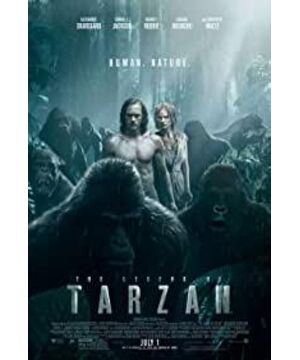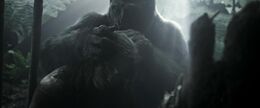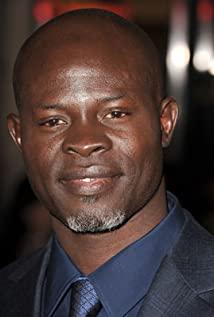But the male protagonist Tarzan (Alexander Skarsgard)'s toned eight-pack abs, handsome face, and the mermaid line that attracts many girls' drooling make this a bit of a bad movie.
The film is based on the novel "Tarzan of the Apes" by American writer Burroughs, directed by David Yates, the director of the last four parts of the "Harry Potter" series, and the actor Tarzan is played by the 194-year-old Skarsgard.
At the beginning, I was full of expectations for this film. In the context of the domestic film protection month (in 2004, the State Film Bureau "orally communicated" in order to support domestic films, and the introduction of foreign films was not encouraged during the summer season for a month or two) , I can finally change my taste and feel the audio-visual shock of Hollywood blockbusters.
But when I walked out of the theater, I was still a little disappointed. Although the special effects, acting, and scenes are all unsatisfactory, as are the magnificent Congolese jungles and realistic and ferocious beasts, it always feels like something is missing.
Plot, the film is divided into two parts. The first half mainly talks about the luxurious life of Mount Tai after returning to modern human society and the debate about racial civilization hidden behind the appearance. The second half is about the brutal, bloody, violent and exposed flesh of Taishan after he returned to the Congo jungle for revenge.
Fight with chimpanzees.
fight with the chief.
fight the lion.
The love story between Tarzan and Jane (Margot Robbie) is toned down in the film, and the heroine's performance is charismatic and compelling. But in such a film that exudes strong male hormones, she had no choice but to be "kidnapped" to stimulate her husband Tai Shan's bestiality.
In the stereotyped female image of hero films, the heroine is generally weak, a burden or vassal beside the hero. But Jane has become a powerful assist for Taishan, and profoundly shows us what is meant by "a husband and wife are of one mind, and their profits break gold".
As an IP film (a film based on intellectual property and well-known brands), the director does try to tell a novel story to the audience, such as his unique way of bringing Tarzan from modern society into the Congolese jungle, trying to discuss being an anomaly or What happens when the minority, after gaining a certain sense of identity and the "majority" label, returns to their original minority group again.
David Yates also added a description and discussion of colonial culture and slavery in the film, but it is slightly separated from the story of the hero of Tarzan saving beauty, and there is no way to really make the viewer think about it.
Especially since this film looks at these issues from the perspective of white people, it is even more difficult to resonate with people of the yellow race.
Since ancient times, the deep feelings cannot be retained, and the routines have always won the hearts of the people. The story is a bit tricky, but female viewers who want to go to the cinema to eat popcorn and watch their abdominal muscles drool, and students who like the animal world and want to see the big scene of the African jungle, can go and have a look.
View more about The Legend of Tarzan reviews











